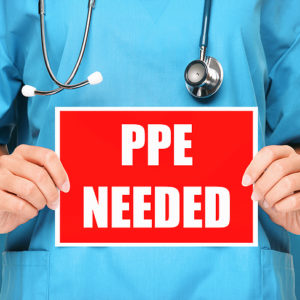International smuggling gangs are using the COVID-19 pandemic to expand their criminal empires by exploiting the growing demand for medical products and protective gear, according to experts in illicit trade.
And, the same networks developed to smuggle cigarettes and tobacco are now being used to perpetuate medical and personal protective equipment (PPE) fraud.
“COVID-19 lockdown restrictions have boosted all drivers of illicit trade, and criminals quickly seized opportunities and generate significant amounts of profit,” said Hernan Albamonte, head of Illicit Trade Prevention at Philip Morris International (PMI). “Criminal networks are using the crisis to supply markets with illicit services and products that are in high demand during the pandemic.”
Albamonte was part of an online roundtable on PPE fraud, which featured Steve Francis, assistant director for the Global Trade Investigations Division with Homeland Security Investigations (HSI), and J.R. Helmig of the SAS Institute’s Global Security Intelligence Practice program.
Aside from facilitating money laundering — and the trafficking of dangerous weapons, drugs, antiquities and jewels — these international gangs are dealing in counterfeit products like COVID-19 PPE, Albamonte said.
Just days before the roundtable, U.S. law enforcement agencies announced a series of civil and criminal complaints against ISIS, alleging it set up an online PPE scam targeting U.S. hospitals, nursing homes and first responders in order to raise funds.
“There are lots of new emerging fraud schemes, and oftentimes those fraud schemes are directed against those in the population that are most at risk,” Helmig said. “They may not have the savviness to recognize a fraud scheme, or they may be so desperate that they don’t care.”
“What we realized early — in March and April — is that this is much bigger than intellectual property or fraudulent schemes,” Francis said. “We saw a surge of unapproved medical devices and home-health test kits that were fraudulent, counterfeit and brought into the United States and people were not sure whether they were legitimate or not.”
Meanwhile, according to Albamonte, black market tobacco “represents 10 to 12 percent of tobacco consumption, with an estimated illicit volume of up to 600 billion illegal cigarettes — but black-market tobacco doesn’t exist in a vacuum.”
PMI is an American multinational cigarette and tobacco manufacturing company, with products sold in over 180 countries. Albamonte said international cigarette smuggling is a wide-ranging problem and a lucrative crime, which creates a potential revenue stream for terrorist groups like ISIS and other highly developed criminal networks.
“The same criminals who traffic in weapons, exotic animals and even people, profit massively from illegal tobacco —and the consequences are dire,” Albamonte said.
Albamonte referred to a 2015 interagency report from the U.S. government, which concluded that tobacco and cigarette illicit trafficking is a serious threat to national security.
Worldwide, transnational organized crime and the flow of illicit tobacco — directly and indirectly — leads to more than illegal trade and national security matters — there is also a regulatory component.
In light of the regulatory crackdown on electronic nicotine delivery systems in the U.S., there is additional evidence that shows increased regulation of tobacco products — and reduced cigarette smoking — could lead to a spike in the illicit trade of e-cigarettes, e-liquids and heat-not-burn products.
The correlation between aggressive tobacco regulations and smuggling is nothing new. Michael LaFaive of the fiscally conservative Mackinac Center for Public Policy said that illegal trade rises because of flavor bans on e-cigarettes and tobacco products and increased tax rates.
In the report Albamonte cited, the illicit tobacco trade funds groups like ISIS, the Irish Republican Army, Hezbollah and al-Qaeda.

